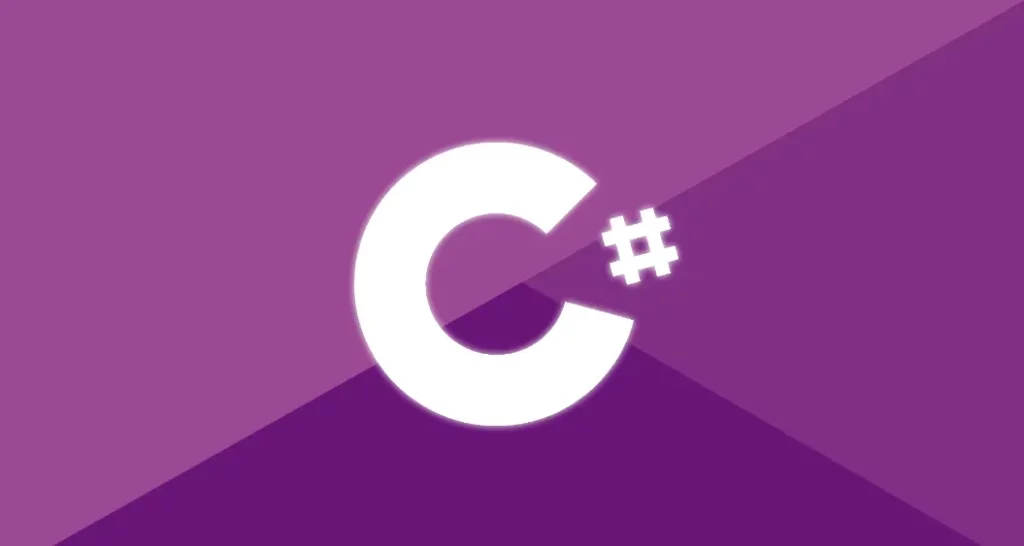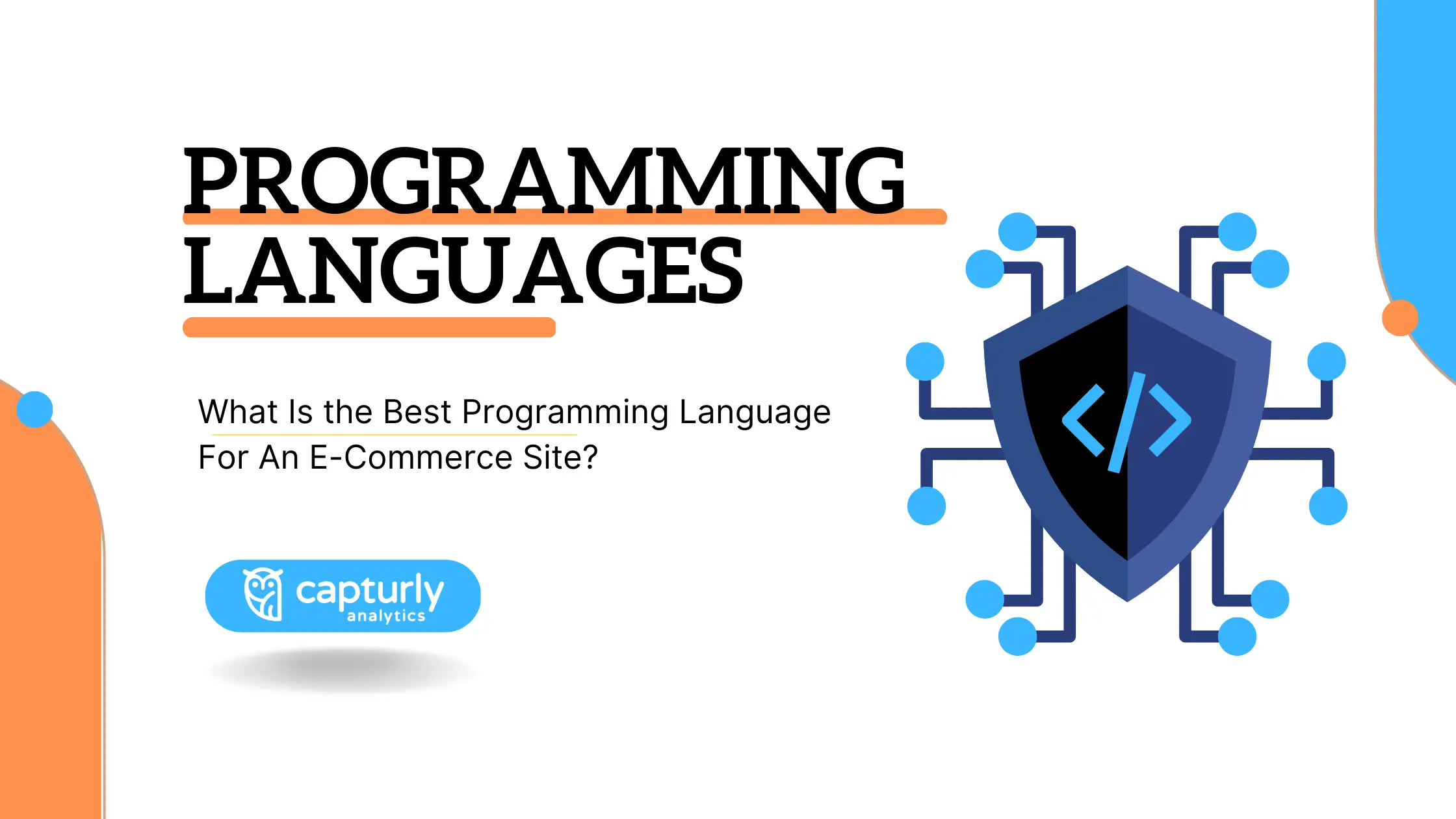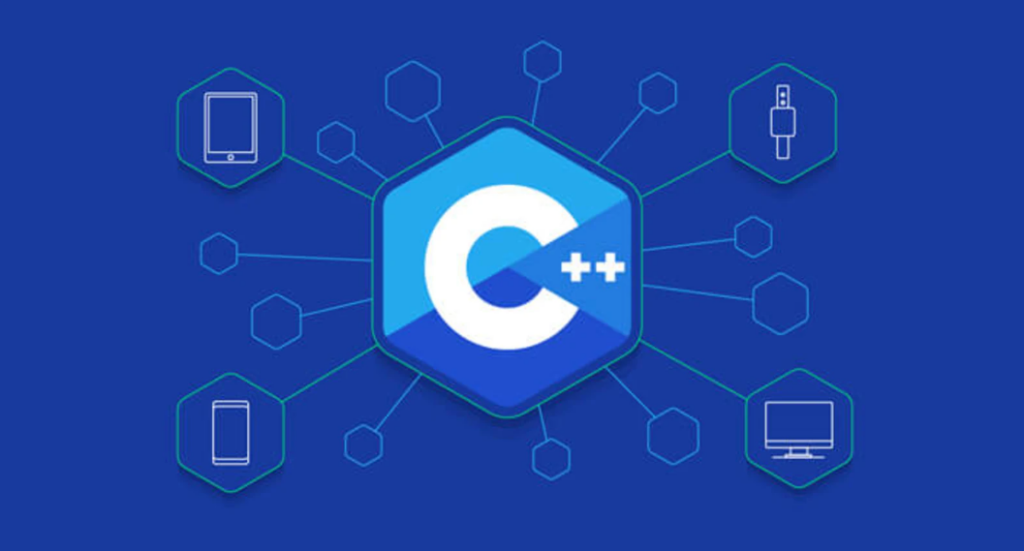E-commerce is rapidly becoming the standard for conducting transactions, as it provides a range of advantages over traditional methods. Its convenience, cost-effectiveness, and ease of use are why e-commerce has become so popular.
Furthermore, its features, such as customer segmentation, data analysis, and marketing automation, have allowed businesses to operate more efficiently and reach a wider audience than ever before. As a result, the demand for e-commerce solutions is expected to continue growing.
Despite the challenges posed by this year, global e-commerce sales have seen an impressive 27.6% increase, reaching over $4 trillion.
This growth is a reminder that e-commerce is still a rapidly expanding market with great potential and opportunities. Businesses of all sizes use its attractive features to keep up with changing consumer demands and stay competitive.
Table of Contents
Best Programming Language for an E-Commerce Site
As the programming language plays a pivotal role during the development process, it becomes crucial to select the right one. With so many options available, selecting one programming language is a huge dilemma. You must consider several factors to ensure desired outcomes.
The initial things that you need to consider are the budget, platform, performance, security, etc. However, to help you make an informed decision, we have given a list of top programming languages for an e-commerce site with pros and cons. So, let’s start!
Java

Java is an ideal language for e-commerce applications due to its object-oriented structure and secure environment. It enables the development of reliable, productive websites with a convenient user interface.
It is also a server-side language that supports large-scale project development and is compatible with many versatile and functional sites that work across multiple platforms. Java provides efficient access to data, making it an excellent choice for e-commerce applications.
Pros
Cons
- Compact and flexible for customer-centric applications
- Robust security
- Product orientated
- Compound user integration competence
- Multithreading
- Superior processing and memory requisites
- Complicated code design
- No mechanism over junk assembly (only if you don’t like the programmed method)
JavaScript
JavaScript is one of the world’s most widely used programming languages, particularly for e-commerce websites. It is an easy-to-learn language that is also highly versatile and scalable. It extends the capabilities of web pages and is supported by most web browsers, meaning there is no need to use multiple languages for different platforms.
Due to its dynamic and object-oriented capabilities, nearly 98% of websites employ JavaScript to create and enhance the user experience on the client side of their websites.
Did you know? In Capturly’s session recordings feature, you are able to detect JavaScript errors and you can easily improve the user experience of your visitors with that. But how? When using the session replay feature, a small red exclamation mark will show you the area where a JavaScript error occurs.
JavaScript is an attractive choice for developers since it can be used for front-end and back-end development. Also, there are a lot of javascript frameworks & libraries that can be utilized to create almost any feature. It can enhance the user experience by adding client-side scripts to web pages.
It can modify how data is displayed, facilitate asynchronous communication, and control browser functionalities. Additionally, JavaScript can be used for server-side network programming, which makes it an excellent option for creating and managing an e-commerce store.
Pros
- Cross-platform compatibility
- Ideal performance and speed
- Error tolerance capability
- Real-time interaction and simple administration
- Simple to understand
Cons
- Poor protection
- Rendering issues for several outline engines
Python
Python is a popular, influential, and highly versatile programming language ideal for creating an e-commerce site. Its scalability, numerous libraries (Pandas, NumPy, Matplotlib, SciPy), machine learning capabilities, ready-made solutions, and database compatibility make it an excellent choice for using artificial intelligence, scientific computing, and engineering.
This programming language is quickly becoming a popular choice among web developers in the e-commerce industry worldwide. Its flexibility and versatility make it ideal for constructing complex and large e-commerce websites. It is known for its efficiency and readability and has off-the-shelf solutions for all types of databases. It is also used for Machine Learning, Scientific computing, and engineering applications.
Python is an excellent selection for constructing an e-commerce store because it can create a dynamic, user-friendly, and exceptionally intuitive atmosphere. It does not necessitate intensive programming abilities or coding complexities, as it has a straightforward syntax that is easy to comprehend.
Pros
Cons
- Extremely accessible
- Compact functioning
- Simple to understand
- High-quality functioning
- Massive library and collection
- Slow speed
- Superior memory utilization
- Ineffective performance in mobile app development
C Sharp
C#, a popular object-oriented language, has become a go-to for developing e-commerce websites. Its simple, neat, and safe syntax makes it possible to create dynamic, secure, and scalable applications with an intuitive user interface and experience that are easy to use and maintain within a .NET Framework.

C# is relatively easy to learn for those familiar with C, C++, and Java. It handles many of the complexities of other languages, providing capabilities such as enumerations, nullable value types, and direct memory access. Furthermore, C# supports encapsulation, inheritance, and polymorphism, making it more straightforward and adaptive than its predecessors.
C# is an excellent choice for e-commerce web development, designed with security in mind. Its object-oriented programming capabilities make it easy to process and manipulate data quickly, while its built-in security features protect your website from potential vulnerabilities.
Additionally, its libraries allow for easy data imports from other sources, meaning it is one of the most efficient languages when updating your website’s information. All these features make it an ideal choice for creating a secure and reliable e-commerce platform.
Pros
Cons
- Superior readability and functioning
- High-end scalability
- Product-orientated approach
- Multithreading
- High Community assistance
- Slow load time
- Controlled flexibility
- Server dependence on Windows
PHP
PHP might be the best option if you are still searching for a suitable programming language for your e-commerce website. It is renowned for its efficiency and allows you to create a robust, scalable website for your business. Plus, PHP is easy to learn, which is why many leading websites, such as Facebook and WordPress, have been developed using it.
PHP is an invaluable tool in developing e-commerce websites. Despite the uncertainty of the future, PHP will continue to be an essential component of website development in 2023 and beyond, offering developers the opportunity to create robust and reliable websites.
Reports indicate that PHP has achieved 8th place among the top 10 programming languages. It has even gone as far as surpassing C++ and Kotlin and becoming the fourth most popular language. Also, the higher flexibility of PHP saves time and allows you to change anything while working on a project. Furthermore, developers can easily reuse existing functions and codes during the project.
Pros
Cons
- Steady features
- In-built record linking elements
- High-speed functioning
- Simplified usage
- Effective library assistance
- Poor protection
- Unsuited for large-size website apps
- Low type affecting high risk for inaccurate information
Kotlin
Regarding Android app development, Kotlin is the first language that comes to mind. Google recently announced it as a preferred language for such projects and has been widely adopted by developers.
From code structure and easy learning to accuracy, Kotlin has become the preferable choice over Java. Despite the reliability and familiarity Java offers, Kotlin comes up with advanced features to simplify the development process and save time for the developers. Kotlin offers better readability with shorter codes, resulting in fewer errors during development. The primary benefit of using Kotlin is that it is easy to write and read.
Furthermore, the simplicity and shortness of the codes make it simpler for the developer to debug quickly. Java libraries are compatible with Kotlin, making it straightforward for developers to shift to Kotlin from Java without making massive changes. However, null reference is one of the most significant perks of using Kotlin.
Pros
Cons
- Improved team productivity
- Error-free and easy maintenance
- Simple compliance with Java code
- Smaller learning curve
- Minimum bugs
- Ideal for JVM functions
- Inconsistent speed
- Immature programming language
- Limited learning materials and resources
Ruby on Rails
Ruby on Rails is a powerful and efficient language often used to develop e-commerce websites. It is highly flexible and can help you build a website quickly and easily. Many developers consider Ruby on Rails the ideal language for creating complex websites with many features.
Ruby on Rails is an excellent choice for those seeking a personalized e-commerce store that can handle significant traffic. It features a vast library of code with ample support from a large community, which can be utilized to address various e-commerce challenges and streamline the process. Furthermore, its focus on security helps to ward off potential security risks.
Ruby is a widely-used programming language for entrepreneurs and startups looking to build e-commerce websites. It is the 12th most popular coding language to develop these types of sites and is renowned for its ability to create complex websites quickly and efficiently. Popular websites like Dribble and Airbnb have used Ruby’s features to create web platforms.
As a high-level programming language, Ruby is perfect for e-commerce websites that require a lot of customization and need to handle high levels of traffic. It can also build web applications like blogs, CMSs, and forums.
Pros
Cons
- Elevated speed
- Steady and accessible option
- Adaptable syntax
- Simple to learn and apply
- Superior functioning
- Issues in debugging
- Web-centralized options
- Less function in product-oriented requirements
Django
Django is an excellent choice for developing e-commerce websites due to its scalability, reliability, and robustness. With it, you can quickly build an e-commerce site without starting from scratch.
Django is a robust Python-based web framework that provides a library of pre-written code to create efficient, well-structured websites. By utilizing Django, you no longer need to start coding from scratch. With its framework, you can customize it to meet the needs of your e-commerce site.
Django has various features that allow you to customize your site as your business grows. It is also written in efficient Python code, making it easy to use and maintain. Furthermore, Django provides built-in security features to protect your data, making it a safe choice for e-commerce.
Pros
Cons
- Improved website compatibility
- E-commerce features according to houses
- Frequent testing and updates
- Improved speed and simple functionality
- Additional protection and reliability
- Incompatible with massive projects
- A lack of coding conventions.
- Tedious requirements
C++
C++ is a powerful programming language that is challenging to learn. However, its complexity makes it one of the most popular languages for e-commerce applications. It is because C++ can support a wide range of backend languages, and its low-level nature provides numerous syntax options that enable scalability, security, and flexibility.
Additionally, developers find C++ beneficial for analyzing and understanding online consumer data, providing scalability and a user-friendly interface.
Pros
Cons
- Competent interoperability and integrity
- Programmed trash assembly
- Advanced readability
- Vast community support
- Easy multithreading
- Slow loading period
- Excessive growth price
- Case-sensitive approach
CSS
CSS is a popular choice among web developers who prioritize the aesthetic look of websites. It is a powerful scripting language used to control the appearance of HTML content. Manipulating texts, headers, images, colors, and other design elements allows for creating visually appealing e-commerce websites.
Additionally, CSS enables faster page loading and improved efficiency when building an e-commerce platform. Shopify, one of the most popular e-commerce platforms, uses CSS to customize themes for online stores.
Advantages of E-Commerce Websites
The development of technology has made having a solid online presence an essential component for any business to remain competitive and relevant. Some companies have revamped their digital presence, while others have transitioned physical stores into online stores. Here are some advantages that e-commerce stores offer businesses and customers:
Easy access to client’s data
An e-commerce website offers businesses access to valuable data that they wouldn’t have access to with traditional offline store retailing. Consumers typically provide information like their name, email address, and phone number when shopping at an e-commerce store, which allows businesses to stay in contact with them and bear the responsibility of safeguarding their data.
Depending on the country, data protection laws such as the General Data Protection Regulation (GDPR) in the EU regulate the use of such data. In addition to personal information, businesses can gain insights into customer demographics and behavior through Google Analytics, which can help them optimize the customer journey and target their marketing efforts more effectively.
Improved scalability
Scaling up an e-commerce store requires fewer resources than a physical store. All necessary is additional inventory, storage space, and digital improvements. It is more affordable than finding larger premises or opening multiple shops in different locations and gives you access to a global customer base.
Low-cost operations
Going digital with your business eliminates needing a physical location. It could result in cost savings and the automation of processes, requiring fewer staff members. Additionally, online marketing tactics such as social media campaigns, Facebook ads, and Google Adwords are more effective and less expensive than traditional offline strategies. It can mean more sales and competitive prices, which benefit the business.
Wide range of consumer base
A significant advantage of utilizing the best programming languages to construct an e-commerce store for your business is the opportunity to reach a more extensive customer base. Geographical boundaries are eliminated when you move your operations online, as you can offer your items to web shoppers worldwide.
Your business can no longer be restricted to the customers in your local area, as an e-commerce store makes it possible to interact with customers from different parts of the world. You can do this through social media, online forums, and Google searches. Moreover, it opens you up to new niche markets you couldn’t access with a physical store.
Affordable marketing
E-commerce business owners don’t need to shell out large amounts of money to promote themselves. There are various cost-effective ways to make their products visible in e-commerce. Creating attention-grabbing content for your product has become easier than ever without hiring external help. Today, numerous applications are available online to create content and tutorials to learn how to use them.
Advanced flexibility
An advantage of having an e-commerce store is its convenience. Customers can shop anytime, day or night. Automation allows the sales process to continue even when you’re not there.
Information is also easily accessible to shoppers, who can access product details and make purchases whenever they like. This flexibility offers an excellent opportunity to earn more money and gain new customers. It also fosters a stronger relationship between buyers and sellers.
The Process to Choose Suitable Language for an E-Commerce Website
When constructing an e-commerce website, it is crucial to consider the best programming language for the job. It is advisable to seek a professional developer or development group to help choose the language that best meets the project’s requirements.
- Focus on the compatibility and flexibility of the language with the database and framework that support the front end.
- Set goals.
- List the desired features and specifications, and then match them with the different aspects of the programming language.
- Selecting the right one should be much easier with a complete understanding of the language’s limitations and specifications.
Conclusion
In recent times, it has become evident that technology has advanced significantly. As a result of their impressive skill set, developers, and coders are highly sought-after and required in the tech world. Using a range of programming languages, developers can design great e-commerce websites and applications.
Despite this, the process of creating e-commerce sites and apps still requires a substantial amount of effort and guidance. When selecting a programming language for your e-commerce business, consider your business needs. Ensure the language is flexible, secure, has a strong support network, and compatible with other frameworks. It will increase your chances of staying competitive in the ever-changing market.
Don't forget, sharing is caring! :)










1 Comment
luqmaan s
2023-06-17 at 15:07Great content! E-commerce is booming, and selecting the right programming language is crucial. Java offers reliability and a user-friendly interface, JavaScript is versatile and widely supported, Python is scalable with machine learning capabilities, C# ensures secure and scalable applications, PHP is efficient and easy to learn, Kotlin simplifies development with shorter codes, Ruby on Rails is flexible and efficient, Django provides scalability and reliability, C++ supports a wide range of languages, and CSS enhances the aesthetic appeal. Choose wisely and unlock the full potential of your e-commerce site!